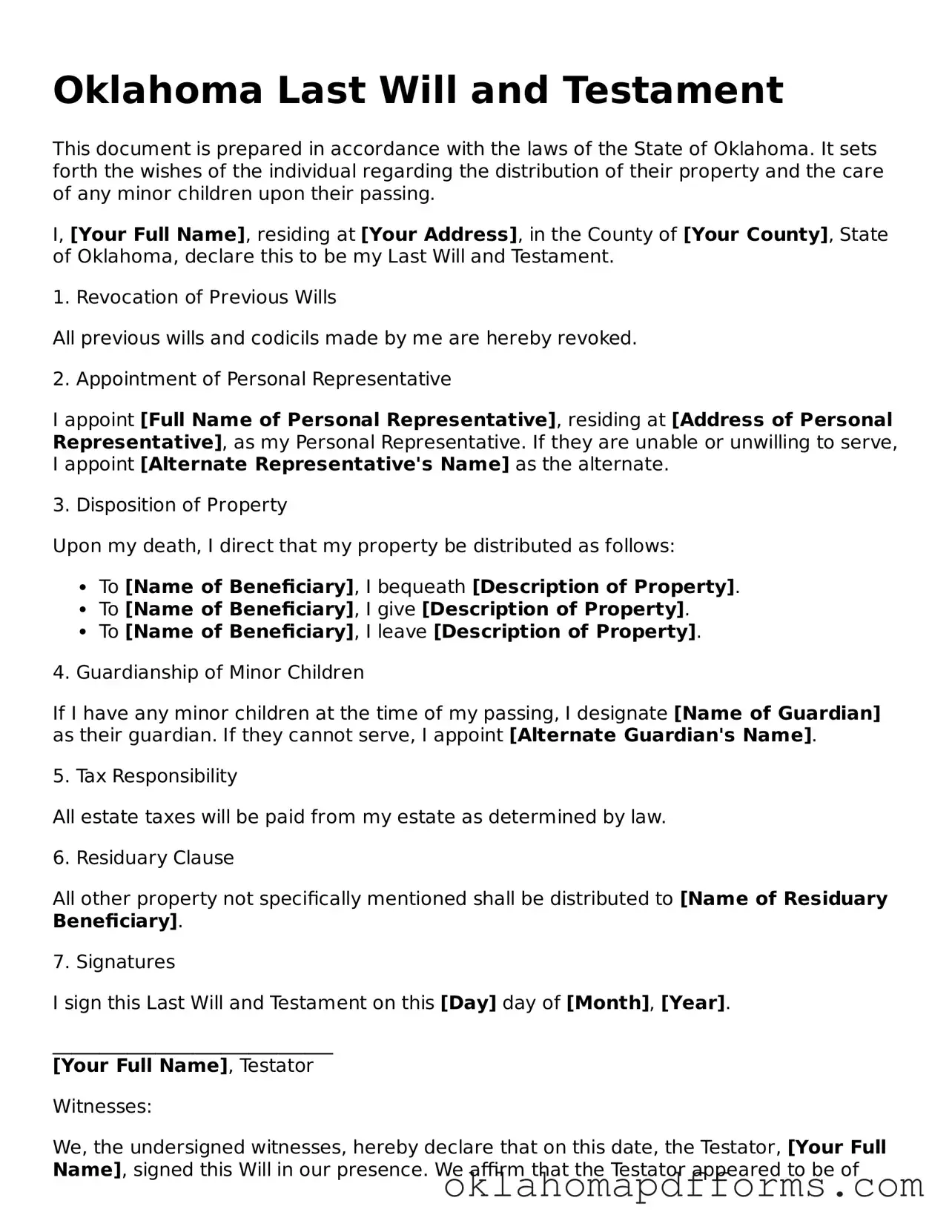Free Last Will and Testament Document for the State of Oklahoma
The Oklahoma Last Will and Testament form is a legal document that allows individuals to outline their wishes regarding the distribution of their assets after their passing. This form serves as a crucial tool for ensuring that personal belongings and financial resources are allocated according to one's preferences. Understanding its importance can provide peace of mind for both the individual and their loved ones.
Open Document Now

Free Last Will and Testament Document for the State of Oklahoma
Open Document Now

Open Document Now
or
▼ Last Will and Testament
Your form isn’t ready yet
Fill out Last Will and Testament digitally in just minutes.